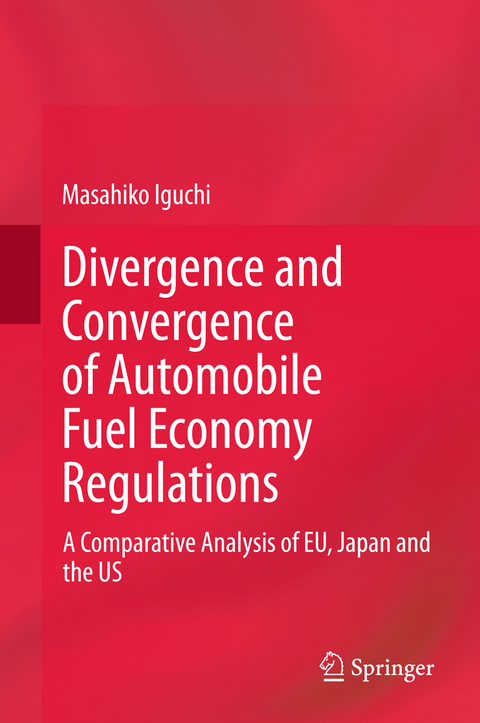Divergence and Convergence of Automobile Fuel Economy Regulations
Springer International Publishing (Verlag)
978-3-319-17499-0 (ISBN)
This book reveals the mechanisms underlying the convergence of car fuel economy regulations in Europe, Japan and the US by drawing upon a constructivist theory of International Relations and law that focuses on business competition and environmental regulations. It offers new understanding of the topic of cars and an issue of climate change, discussing the emerging phenomenon of convergence of fuel economy regulations; addressing the role of business actors in pushing for climate change action; proposing the new model of agency with and beyond states; and providing insightful case studies from Europe, Japan and the US.
The opening chapter reviews the automobile industry and global climate change, providing a background for the discussion to follow. Chapter 2, Business Actors and Global Environmental Governance, grounds the discussion in the field of environmental governance. The third chapter is a case study examining the construction and timing of the European Union's climate policies for automobile CO2 emissions, discussing the underlying factors and the actors influencing the policies. The following chapter argues that Japan adopted its stringent fuel economy regulations primarily because of industry competitiveness, motivated by stringent environmental regulations in export markets and encouraged by a tradition of 'co-regulation' and 'corporatism' to enhance the regulations. Chapter 5 asks why the US, the first country to introduce fuel economy regulations, spent two decades in regulatory stagnation, and discusses how recent US fuel economy regulations came to converge with Japanese and European standards.
Chapter 6 compares, contrasts and analyzes fuel economy regulations among the three case studies and identifies policy implications for the future climate governance for 2015 and beyond. The final chapter explores applicability of the 'agency with and beyond the state' model to other sectors and to climate governance as awhole.
none
Chapter 1: introduction.- Chapter 2: Business actors in global environmental governance.- Chapter 3: Construction of European fuel economy regulations for passenger cars.- Chapter 4: Construction of Japanese fuel economy regulations for passenger cars.- Chapter 5: Construction of the US fuel economy regulations for passenger cars.- Chapter 6: Comparative assessment.- Chapter 7: Conclusions.
| Erscheint lt. Verlag | 20.4.2015 |
|---|---|
| Zusatzinfo | XVIII, 150 p. 14 illus. |
| Verlagsort | Cham |
| Sprache | englisch |
| Maße | 155 x 235 mm |
| Gewicht | 398 g |
| Themenwelt | Naturwissenschaften ► Biologie ► Ökologie / Naturschutz |
| Recht / Steuern ► EU / Internationales Recht | |
| Sozialwissenschaften ► Politik / Verwaltung ► Europäische / Internationale Politik | |
| Sozialwissenschaften ► Politik / Verwaltung ► Vergleichende Politikwissenschaften | |
| Wirtschaft | |
| Schlagworte | Automobiles • climate change • Environment • Private Environmental Governance • Regulatory Convergence |
| ISBN-10 | 3-319-17499-1 / 3319174991 |
| ISBN-13 | 978-3-319-17499-0 / 9783319174990 |
| Zustand | Neuware |
| Haben Sie eine Frage zum Produkt? |
aus dem Bereich




